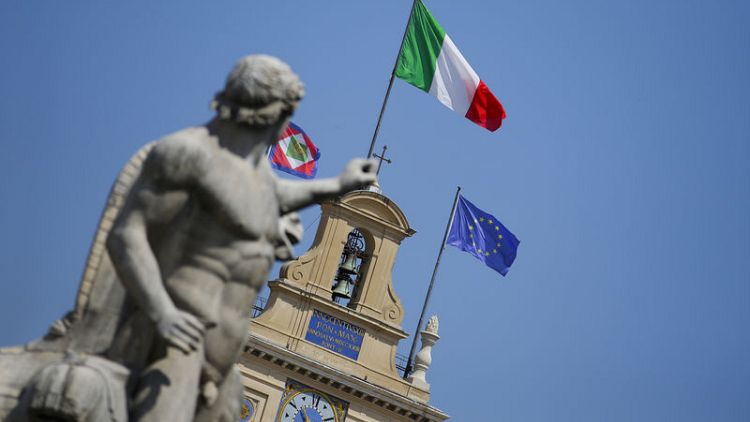FRANKFURT (Reuters) - The European Central Bank should avoid causing "financial distress" to banks by demanding they provide for their unpaid loans too quickly, senior European Union lawmaker Roberto Gualtieri said on Wednesday.
Shares in Italian banks fell this week when it was reported by Italian newspaper Il Sole 24 Ore that the ECB’s Single Supervisory Mechanism (SSM) had given them, on average, until 2026 to set aside enough cash to cover for the large pile of soured credit inherited from the last recession.
That would mean writing off or providing for another 72 billion euros (£63.86 billion) non-performing loans (NPLs), according to Bank of Italy data as June 2018.
Gualtieri, who chairs the EU Parliament committee that oversees the ECB and helped lead a revolt by Italian policymakers on this issue last year, struck a conciliatory tone on Wednesday but warned about the risk of setting the bar too high.
"I'm confident that the SSM shall consider the expectations as the starting point of a supervisory dialogue with the credit institutions, which where appropriate can lead to a revision of the expectations," the Italian lawmaker told Reuters.
"I'm also sure that ... excessive requirements that might produce financial distress shall be avoided. This is particularly important taking into account the tendency of the markets to frontload supervisory expectations."
Intesa Sanpaolo <ISP.MI>, UBI Banca <UBI.MI>, Banco BPM <BAMI.MI> and BPER <EMII.MI> sought to reassure investors after the newspaper report, confirmed to Reuters by a source, came out, saying they did not see a significant impact from the SSM's demands.
The SSM was forced into what seemed an embarrassing climbdown last year when Gualtieri and other senior EU lawmakers, mostly from Italy, accused it of encroaching on the European Parliament's prerogatives with plans to issue rules on how banks should deal with unpaid loans.
Eventually, the SSM issued "guidelines" for loans that go unpaid after their introduction.
But for existing ones, it merely said in July it would issue "bank-specific supervisory expectations" with the "aim ... to achieve same coverage of NPL stock and flow over the medium term".
This meant some investors when taken aback this week by news the SSM, now led by Italian Andrea Enria, would give banks seven years to provide for their stock of bad loans, seemingly applying the same rule that it had set for new ones.
"(The SSM) should be fully consistent with the (July) approach as well as with the clear difference between non-binding and non-automatic supervisory expectations on the one hand, and binding targets on the other hand," Gualtieri said.
(Reporting by Francesco Canepa; Editing by Alison Williams)



